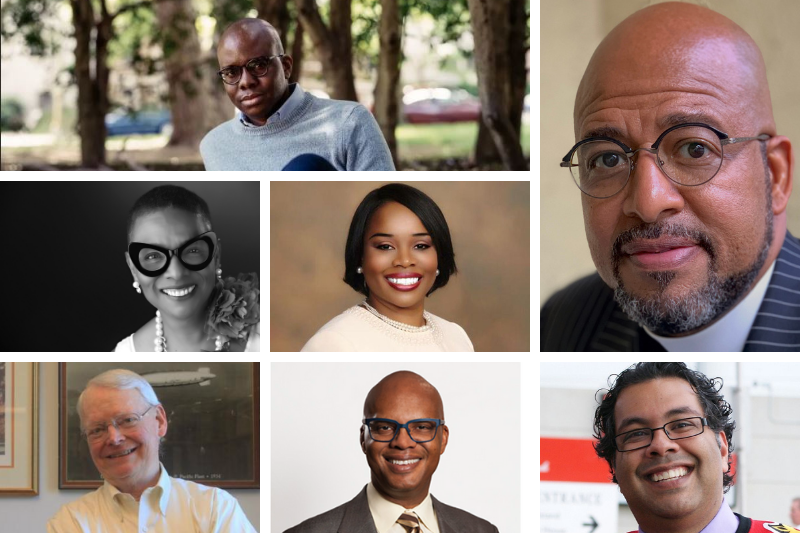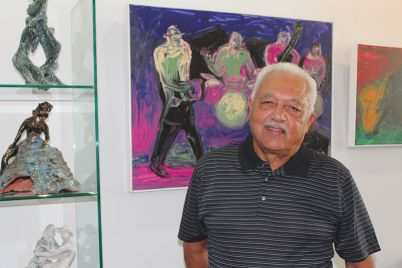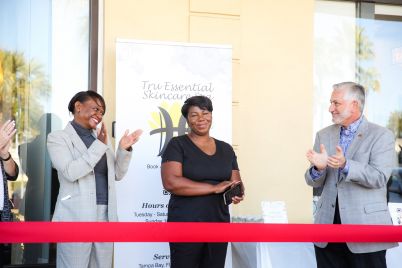This year’s four-day St. Petersburg Conference on World Affairs conference discussed topics ranging from drivers of migration, corruption, climate change, and more. On Feb. 16, the segment “Racial Equality vs. Racial Equity” took a closer look at global and systemic racism.
BY FRANK DROUZAS, Staff Writer
ST. PETERSBURG – The St. Petersburg Conference on World Affairs has a rich history of bringing together distinguished diplomats, military, media, and academic experts to discuss critical international issues of the day. This year’s four-day conference discussed topics ranging from drivers of migration, corruption, climate change, and more.
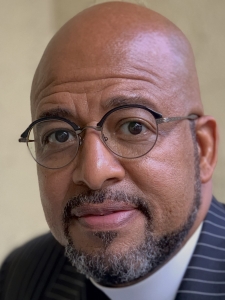
Rev. Kenny Irby, senior pastor of the Historic Bethel AME Church
On Feb. 16, the segment “Racial Equality vs. Racial Equity” took a closer look at global and systemic racism. Rev. Kenny Irby, senior pastor of the Historic Bethel AME Church, moderated the discussion.
“While the terms ‘equity’ and ‘equality’ may sound familiar,” Irby said, “the implementation of one versus the other can lead dramatically to different outcomes for marginalized people.”
USF Professor Dr. Ruthmae Sears, partnering with local historian and activist Gwendolyn Reese, talked about their findings of the Structural Racism Study commissioned by the City of St. Petersburg. Its goals were to provide a historical overview and current data trends that illustrate how structural racism affects aspects of Black lives and communities in St. Petersburg.
Reaching back to 1868, the study showed that segregated practices and Jim Crow laws negatively impacted Black lives, as these became normalized over the years. The study found that the police department worked with the Ku Klux Klan and more readily arrested African Americans and subjected them to police brutality.
“Representation of Blacks in the city council, the judiciary, and the school board were scarce, which made it difficult to have a voice at the table,” said principal investigator Sears.
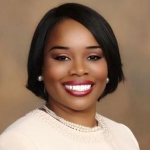
USF Professor Dr. Ruthmae Sears
Furthermore, Blacks were displaced and relocated more readily, and inequities existed in educational opportunities, healthcare, and income between Blacks and whites. Pinellas is still involved in a 50 plus year lawsuit advocating for equitable learning opportunities for Black students, the study showed, which resulted in the failed Bridging the Gap Plan that aimed to close the achievement gap between Black students and their white counterparts.
“Additionally, Black residents have a higher mortality rate and a lower life expectancy,” Sears said, “particularly if they resided in redlined areas.”
Speaking of this study, Reese put it simply: “There’s pain on those pages” and admitted it was traumatizing at times to conduct. From the findings, Reese and Sears made recommendations to the city starting with the continuing support of the work because the study “was just the beginning.”
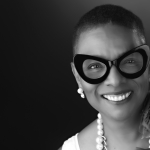
Local historian and activist Gwendolyn Reese
Other recommendations included declaring racism a public health crisis in the city and creating an equity department within the purview of the mayor’s office. Creating and implementing an effective accountability strategy was another recommendation, along with creating an African American Quality of Life Sunshine Committee to serve as a permanent race equity board or commission.
“Our final recommendation was to evaluate the possibility of implementing a reparative approach to address disparities that have been made visible from the data and narrative of this report and others,” Reese asserted.
A step in moving forward, she explained, is to develop an evaluation mechanism to monitor and promote accountability of efforts to promote systemic change.
“As we acknowledge the pain of the past,” Sears said, “We must plan to move forward. And promote systemic changes to advance racial justice, we need advocates and allies to work together to ensure appropriate actions are taken.”
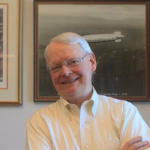
Historian and author Dr. Charles Dew
Historian Charles Dew, author of “The Making of a Racist,” talked about growing up on the white side of the color line in St. Pete. While researching, he came across a harrowing document one day — a price list for enslaved people from the 1800s that included notations like “good young woman and child” for $1,500. Dew said he felt like he “was slugged in the stomach” as all his ancestors, though they weren’t slave traders, were antebellum Southerners that were complicit in such practices.
How could they not see the abominations that were in front of them? Then Dew, who was born in 1937, said he realized he was guilty of the same thing growing up in Jim Crow St. Petersburg.
“I had been staring at racial injustice every day of my life,” he said. “It was right there, it was omnipresent, it was all around me, and I had not seen it — how had that come to pass?”
That revelatory introspection prompted Dew to write his book, in which he aimed to show how white Southerners and whites around the country came to embrace racist views and how those views were continued. He recollects in his book how his mother would read him “Ezekiel,” a children’s story written entirely in a Black dialect, complete with stick figures with spiked hair. At a very young age, Dew learned that there were significant differences between whites and Blacks in the South.
“I literally was an infant when my education began,” he said, adding he simply “absorbed” what was going on around him as he grew up in St. Pete.
A certain “racial etiquette” applied when it came to whites dealing with Blacks, such as whites never shaking hands across the color line, and only referring to Black people by their first names, never “Mr.” or “Mrs.” Young Dew and his brother were also instructed not to eat off the plates that belonged to their family’s Black help, stored in a separate cabinet.
Whites didn’t talk about how unfair things were back then because social ostracism was almost sure to follow if they did, Dew said. When he went north to attend college, it was the first time he shook hands with Black people. Sitting next to African-American students in class and even dining with them, he experienced a world other than one he had grown up in.
He wanted to learn more about Illinois Browning Culver, a Black woman who worked for his family and connected with her every time he came home from college. Through her, Dew came to realize the extent of some of the segregated practices in St. Pete, such as department stores that would allow her to buy a dress but absolutely forbid her to try it on in the store.
“She told me the green benches downtown on the streets of St. Petersburg — which were a landmark for the city, where all the retirees would sit and sun themselves — those were off-limits to people of color,” he said.
Dew’s conversations with Browning Culver — to whom he dedicated his book — profoundly affected him as he realized the humiliation she and others like her suffered daily. Racism was passed on to him, Dew said, almost like a genetic trait, with the grownups passing it down to their children not only in St. Pete but throughout the South.
“And we’re still living with the consequences of this,” he said.
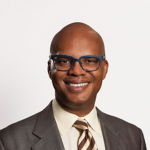
Attorney Ian Gomez
Attorney Ian Gomez, who provided perspective on Barbadian living in St. Pete and the effects of colonialism, pointed out that the island of Barbados only recently parted ways with Britain and officially became a republic on Nov. 30, 2021. There was a great deal of anger — almost protests — on the part of Barbadians, he pointed out, as many were against the future King of England, Prince Charles, participating in a ceremony related to the former colony’s independence.
“We don’t need a white male, dominant individual, giving us our freedom,” Gomez said, adding it implied a feeling of largesse from an oppressor to an oppressed people. Barbados was the birthplace of the British slave society.
Colonialism is an insidious system, and its effects are so far-reaching that Gomez wonders if Barbadians can genuinely think of themselves as equals with the British now that they are citizens of their own republic without re-educating themselves.
“So many of us are caught up in the day-to-day, simply, need to eat, to feed ourselves, take care of our families, that we don’t think of these larger issues.”
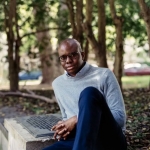
Award-winning writer Tope Folarin
Award-winning writer Tope Folarin, whose parents emigrated from Nigeria, attended elementary school in Utah and remembered being the only Black child at his school. Though they urged him to do well in school, his parents did not understand that if they had been active members of the school community, the school would then perceive them as a “family worth investing in,” he recalled.
Whereas American parents might urge their children to participate in extracurricular activities like music lessons or athletics — and put them on a college application someday — the importance of this was not as apparent to a family from Nigeria.
Yet Folarin benefited by having adults in his life, such as teachers, that helped guide him and his siblings to fill in these gaps.
“I had teachers, for example, that took me to the various museums on the weekend,” he said. “Other teachers bought us books. I had teachers who held me after class who encouraged me to apply for contests or programs.”
Looking back, Folarin believes all these adults understood the importance of equity, as he and his siblings weren’t as “plugged in” to the community and the kind of networks that children need to be a part of to be successful, he said.
Panelist Naheed Nenshi, who governed a multi-racial city in Calgary, Canada, said for the last 150 years, his city has welcomed people from “every corner of this broken earth” with a promise of safety, prosperity, and opportunity.
“I often say that we’ve crafted here a place where nobody cares what you look like or where you came from, or how you worship or whom you love, or what your daddy’s last name was,” he said. “We care that you’re here, and the promise that we make to you is that you’ll be safe here and that you and your kids and their kids will have extraordinary opportunity here.”
For far too many people, though, we are not achieving that promise, said Nenshi, the first non-white mayor of any major city in Canada. He is also the first Muslim mayor of a large North American city, serving from 2010-2021.
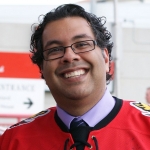
Former Mayor Naheed Nenshi, Calgary, Canada
For years, Nenshi was on the world stage talking about the importance of inclusion and diversity, but with the murder of George Floyd in Minnesota by a white officer, it became more apparent to white Canadians that people of color are not living the same lives that others are, he said.
There was a three-day hearing at the city hall in Calgary, Nenshi explained, where citizens were invited to come and tell their stories of racism they’ve endured.
“When 20-year-old men are talking about the way they’re treated in stores and the way they’re treated when they go out on the street in the community — and it’s the same stories that my friends used to tell 30 years ago — what’s the problem here?” he asked.
Nenshi and other city officials learned from those meetings that although his city is a place of limitless opportunity, for many, that opportunity is different, especially for young people. They constantly must put up with “micro-aggressions,” such as security guards paying particular attention to them while they shop or white citizens remarking on how well they speak English — even though they were born in Canada.
The former mayor said that young people, though acknowledging their grandparents and parents had to “deal” with it, now believe the world should be at a place where their generation no longer should have to put up with it at all.
“For me, the hardest part was coming to the understanding that it is okay to both be super proud of what we’ve built,” he said, “but also understand we’ve got a long way to go.”

